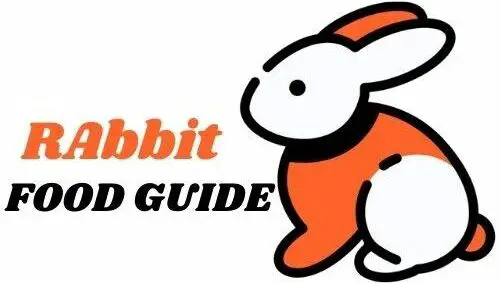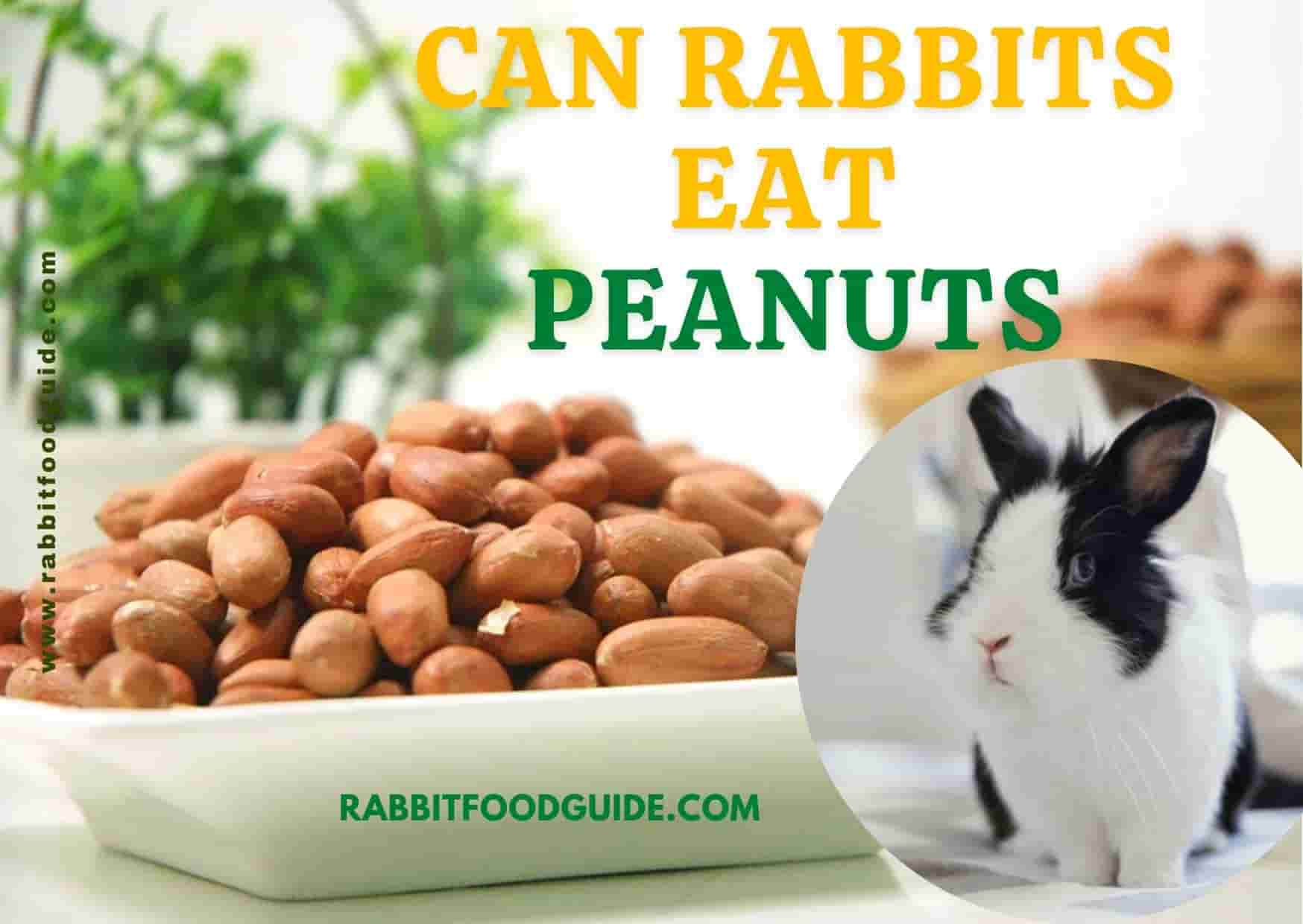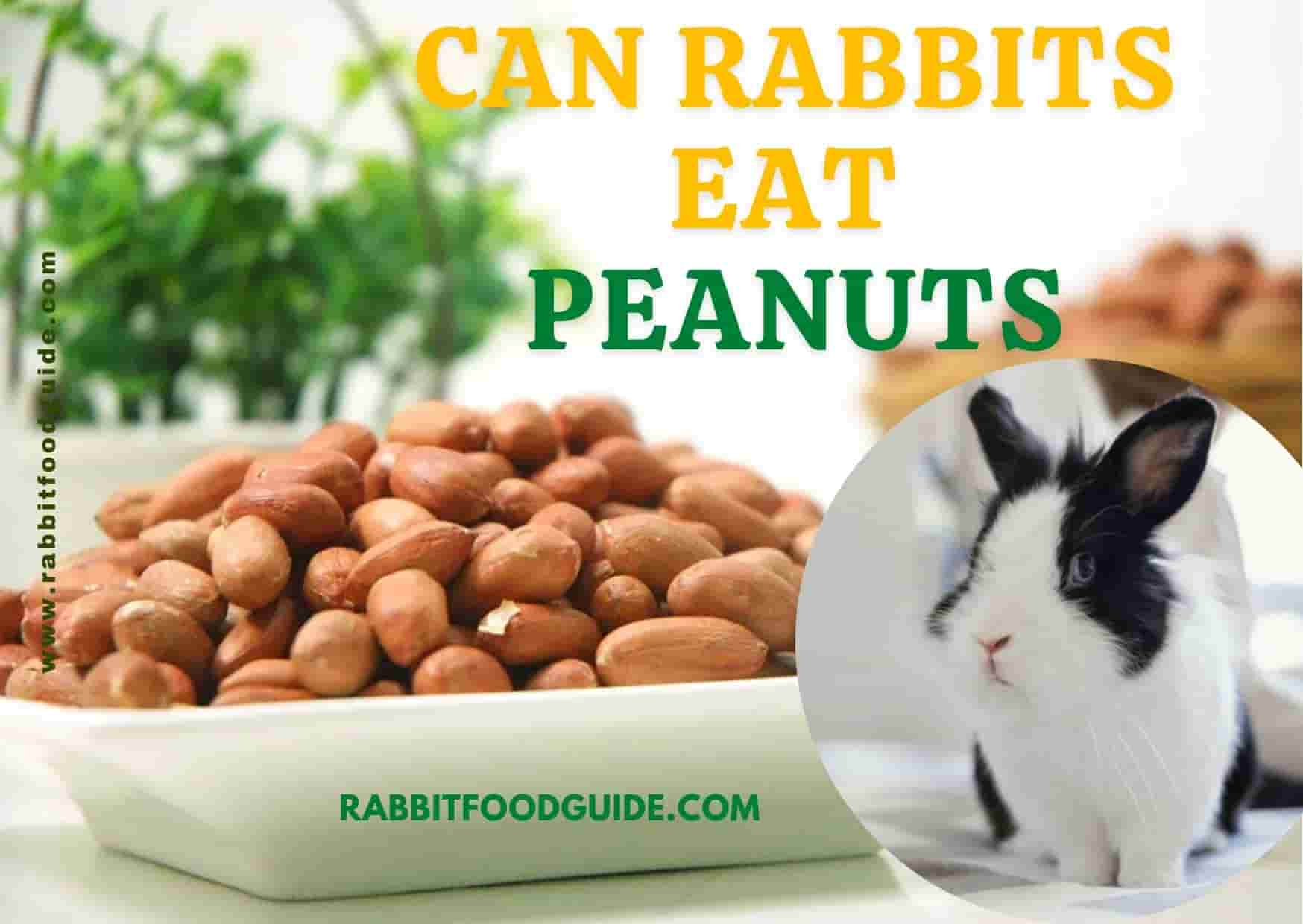
Table of Contents
Can Rabbits Eat Peanuts?
Can Rabbits Eat Peanuts? No. Unfortunately, peanuts are unhealthy food for our loving rabbits. Most people enjoy peanut and peanut butter most of the time. You may be wondering whether it is safe for feeding rabbits. We have the golden rule that nuts and seeds are unhealthy for rabbits. Peanuts are not suitable food for rabbits’ sensitive, and fragile digestive systems. These nuts can lead to many health problems in small animals like rabbits. Peanuts have high nutrition values. But these nutrients are imbalanced for rabbit’s nutrition needs.
Don’t take any risk by proving them Peanuts. We must avoid adding nuts to rabbits’ daily diet. Being a rabbit owner, we must check all new foods, whether it’s bad or good for rabbits. This article covers all the things you need to know about Peanuts. Knowing everything about rabbit food (good, bad, and reasons) is the best way to become a good rabbit owner.
Without any delay, let’s get started !!!
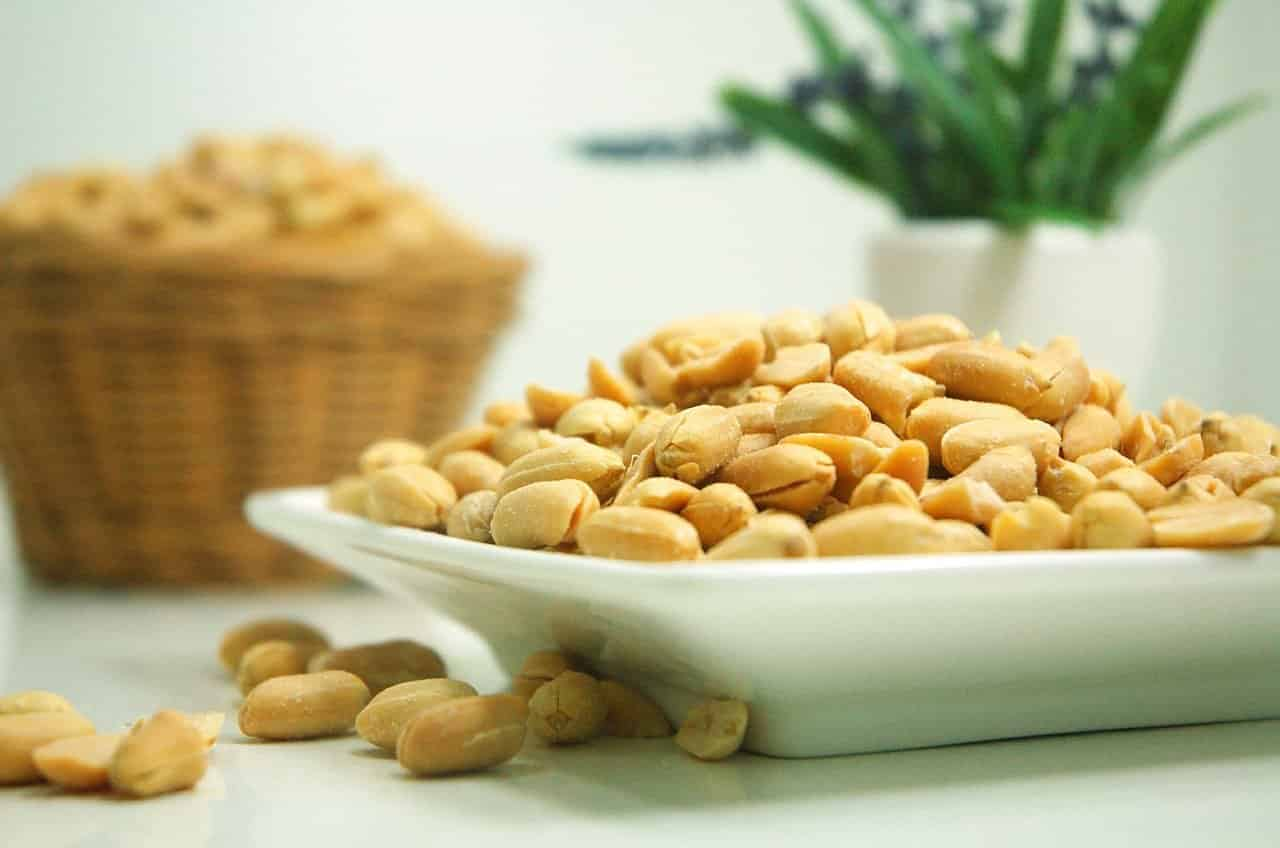
GET MORE INFORMATION ABOUT: RABBITS & STRAWBERRIES
Extra information about Peanuts
Peanuts and peanut butter are one of the most popular foods. The peanuts plant belongs to the pea family. Peanuts are popular as nuts, but they are technically legumes. Peanut plants have small yellow flowers. One peanut plant can produce 40 pods of peanuts. There are 4 types of peanuts: Virginia, Runner, Valencia, and Spanish. They are mainly different in size and taste.
More than ½ of the globally produced peanuts are used for the production of peanut butter. Peanut butter is very popular in the USA: 94% of homes in America use peanut butter regularly. Peanut butter is also very important for the confectionery industry. 4 out of 10 candy bars in the USA contain peanut butter.
softschools.com
Peanuts are rich in good nutrients for humans. Peanuts are highly packed with protein, calories, and fats. Because of the high fat, peanuts are categorized as oilseeds. Peanuts are low in carbs. These nuts also contain biotin, copper, folate, manganese, vitamin E, thiamine, phosphorus, etc.
Peanuts are high in fat, consist mostly of mono- and polyunsaturated fatty acids. They are often used to make peanut oil.
Healthline.com
Peanuts also have a bad side even for humans. Peanuts are one of the most common allergic nuts. These nuts also have the potential for aflatoxin poisoning.
According to the USDA Nutrient Database, 100g of raw peanuts contain,
| Energy | 2,385 kJ |
| Carbohydrates | 21 g |
| Dietary fiber | 9 g |
| Fat | 48 g |
| Protein | 25 g |
Vitamin & Minerals
| Pantothenic acid (B5) | 1.8 mg |
| Vitamin B6 | 0.3 mg |
| Folate (B9) | 246 μg |
| Vitamin E | 6.6 mg |
| Calcium | 62 mg |
| Magnesium | 184 mg |
| Phosphorus | 336 mg |
| Potassium | 332 mg |
As you can see in the above graph, Peanuts contain a high amount of fat, carbohydrate, and protein. Also, peanuts contain unhealthy amounts of acid and phosphorus for rabbits.
Do Rabbits like to eat Peanuts?
Why not, if you give them Peanuts, they will definitely eat those. They can’t understand whether it is healthy or not. They like to eat sweet things. Don’t ever try to feed Peanuts for rabbits even if they like to eat them. It is up to you to protect the health of your pet.
We need to care for rabbits always more than other pets. Unlike dogs and cats, rabbits need more attention in their health and diet. There are lots of other synthetic food that can harm rabbit’s health. Some of them are Chocolate, Bread, POPcorn, Oats, etc.
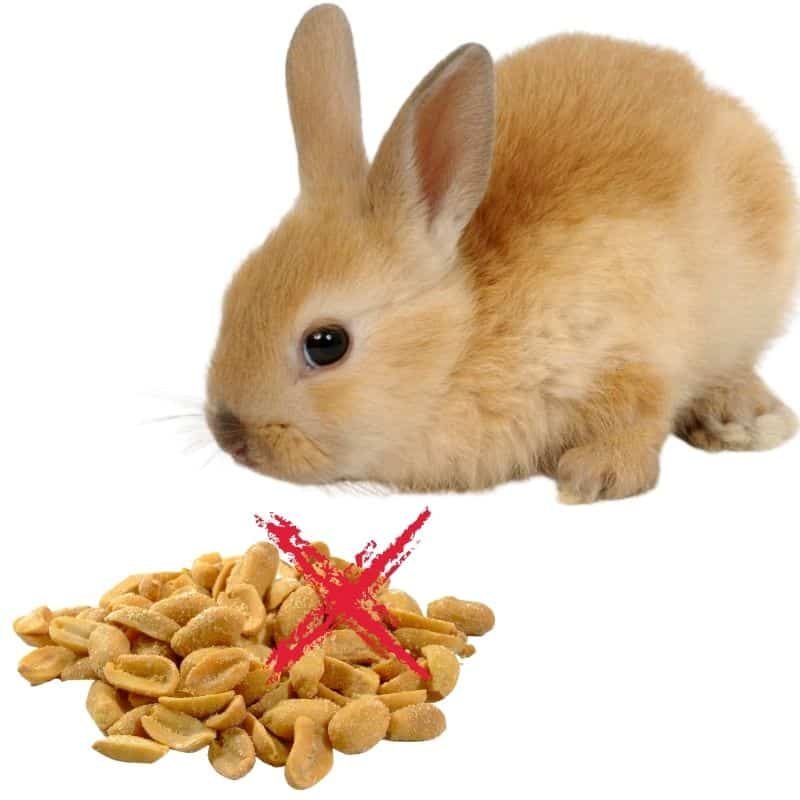
Are Peanuts Good For Rabbits?
Peanuts are good only for humans. We should not provide Peanuts for rabbits. Peanuts have a small amount of aflatoxin. This can be harmful to rabbits. They will show symptoms like lethargy, vomiting, and loss their appetite. There is a probability of Peanuts getting stuck in rabbits’ throats. This may lead to choking hazards in rabbits.
Peanuts have some nutrients, but they contain too much of unhealthy nutrients for rabbits. Eating single peanuts might not harm your rabbit’s health. But there are good foods we can provide rabbits without any harm. So why are we even take a risk of feeding peanuts to rabbits? It’s better we avoid feeding peanuts to rabbits.
Avoid Feeding Peanuts to your rabbits. It’s unhealthy food for them.
Risk Of Feeding Peanuts For Rabbits
Peanuts do not have any nutrients that rabbits need. Also, there is like no nutrition value in peanut butter for rabbits. Those are only rich in fat and carbohydrates that are bad for rabbits. These things will only lead your rabbits to health issues.
Allergies are coming from any kind of nuts including Peanuts. There is a potential of aflatoxin poisoning too. We should never provide any kind of nuts for rabbits. This may cause serious health problems in rabbits. Due to the high fat and carbohydrate content, there is a risk of weight gain. Rabbit’s digestive system can’t handle high-fat foods. Feeding Peanuts can lead to indigestion and may cause choking situations. There is a probability of peanuts getting stuck in your rabbit’s throat.
Can Rabbits Eat Peanut Butter?
Peanut Butter is definitely “no” for rabbits. Peanut butter is unhealthier than peanuts. Commercially peanut butter is made by adding extra ingredients like sugar and extra fat. These things can lead to many health issues in rabbits. Rabbits’ digestive systems will not be able to handle these things. Do not ever try to feed these things to your loving rabbits.
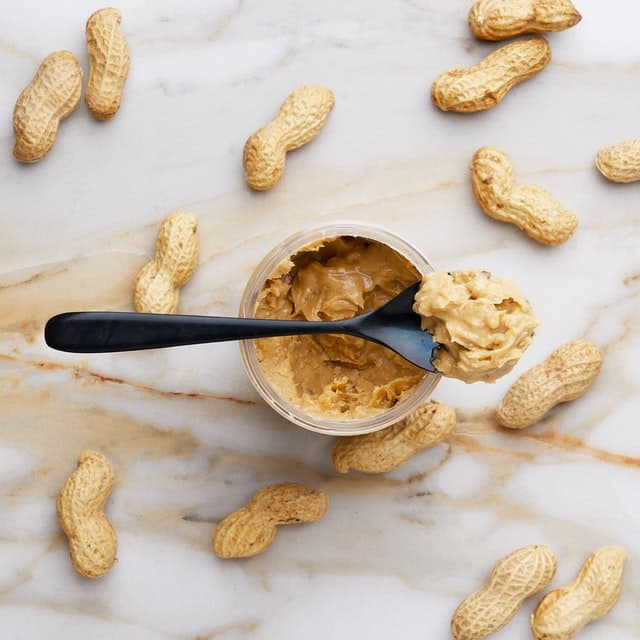
Can Rabbits Eat Peanut Shell?
Peanut shells do not contain high carbohydrates and fat like peanuts. But they are rich in fiber. Due to the high fiber content peanut shells are also not a good food choice for rabbits. If you intend to give shells, we must only serve a small number of peanut shells for rabbits. Overfeeding them can lead to gastrointestinal distress in rabbits.
Can Bunnies Eat Peanut Butter?
Don’t ever provide peanut butter for your bunnies. There are unhealthy foods. We must avoid feed peanut or peanut butter to these little rabbits.
Other Harmful Foods For Rabbits
Try to avoid these foods from your rabbit’s diet. These things can be harmful and can lead to serious problems in rabbit’s health.
- Bread
- Cookies
- Yogurt drops
- Avocado
- Silverbeet
- Cereal
- Walnuts
- Oatmeal
- Chocolate
- Peanut Butter
- Potatoes
- Rhubarb
- Meat
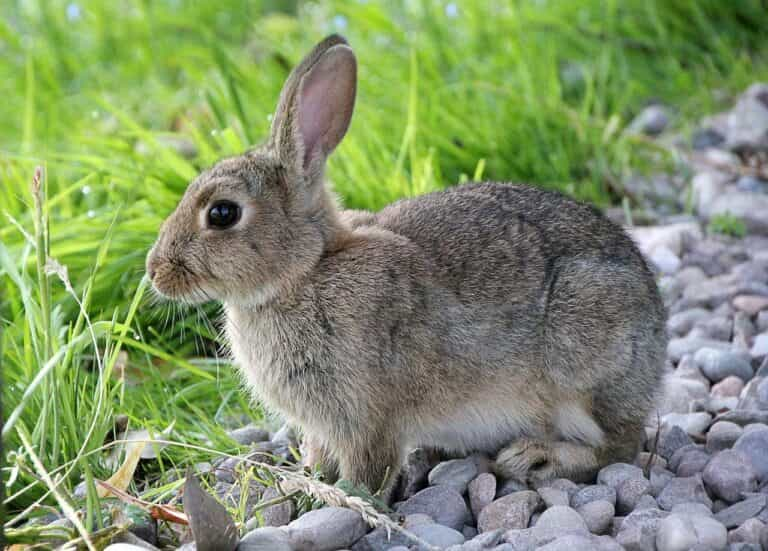
Other Good Foods You Can Provide To Rabbits
Rabbit’s diet should mainly be covered with quality hay and grass. In addition, we can provide a small portion of vegetables and fruits. We recommend giving two cups of fresh vegetables to adult rabbits daily.
- Bell peppers
- Bok choy
- Brussels sprouts
- Basil
- Cilantro
- Endive
- Green leaf
- Red leaf
- Parsley
- Fennel
Fresh fruits should be served one or two times per week as a treat.
- Grapes
- Banana
- Berries
- Melon
- Peach
- Pear
- Plum
- Watermelon
- Papaya
- Pineapple
- Orange
Best Way To Feed Your Rabbit
We need to make a good meal plan for rabbits. We need to provide them with good quality foods. Before feeding rabbits with new food, check whether it’s good for rabbits. As a good Rabbit owner, check whether you cover all the guidelines mentioned below. It’s a general food guide for rabbits.
- Good Quality Grass Hay -I recommend Timothy hay is the most popular/good, all-around unlimited offer to your rabbits. Orchardgrass, meadow fescues are also good for rabbits. Hay is the main food supply. Hay will help your rabbits to stay healthy and strong and maintain a healthy digestive system.
- Fresh Water – Ensure rabbits can have clean, fresh water 24/7. Water bows are most commonly used to supply water for rabbits.
- Provide Good Quality Leafy Greens – Provide them with 5-6 varieties of safe washed green vegetables, weeds, herbs daily (arugula, basil, kale, cabbage, etc.). Try to introduce new greens in small portions.
- Treats & Fresh Fruits – For the safety of rabbits, only provide 1 -2 tablespoons per day. Feed carrots, apples, blueberries, etc.
- Provide Good Quality Pellets – It is good to have a small number of healthy pellets daily. There are too many products out there, keep it in your mind to supply quality and healthy foods for rabbits.
Summary
Peanuts are an unhealthy food for our loving rabbits. Peanuts are highly packed with protein, calories, and fats. These things will only lead your rabbits to health issues. Due to high fat and carbohydrate content, there is a risk of weight gain. Rabbit’s digestive system can’t handle high-fat foods like peanuts. Feeding Peanuts can lead to indigestion and may cause choking situations.
Do not include it as a part of the rabbit’s diet. Peanuts are good nutritional food for humans, but they cause a nutritional imbalance in rabbits. Rabbits have totally different digestive systems than humans. Peanut butter is unhealthier than peanuts. Rabbits need foods that are high in fiber and are low in fat and sugar levels.
As rabbit lovers, we should know the bad foods for rabbits along with good foods. I think this article helps you to know everything about Peanuts.
Thank You!!!
